by Tyler M. Carey, Chief Revenue Officer
Versa Press’ Matt Kennell got the day started by introducing a panel consisting of outgoing BISG board director and CEO of IBPA Andrea Fleck-Nisbet, James Miller of Barnes & Noble, and Joshua Tallent from Firebrand Technologies. The panel examined the approach of embracing a Virtuous Circle of Inclusion → Research → Standards → and Education, a theme which echoed across the day’s panels. The discussion touched upon the past Trends publication from BISG, the dozens of webinars and events that are supported each year via BISG’s staff of 2 full-time employees, and the efforts of volunteers on their committees, as well as how BISG continues to work closely with companies throughout the industry to curate virtual and in-person events exploring topics ranging from sustainability to metadata to workflow to rights to subject codes, and more. Lastly, the panel zeroed in on the primary goals for BISG to achieve during the next three years, including:
1. Transforming supply chain communication
2. BISG at 50 (which happens in 2026)
3. Resource development
4. Membership growth
5. Membership retention
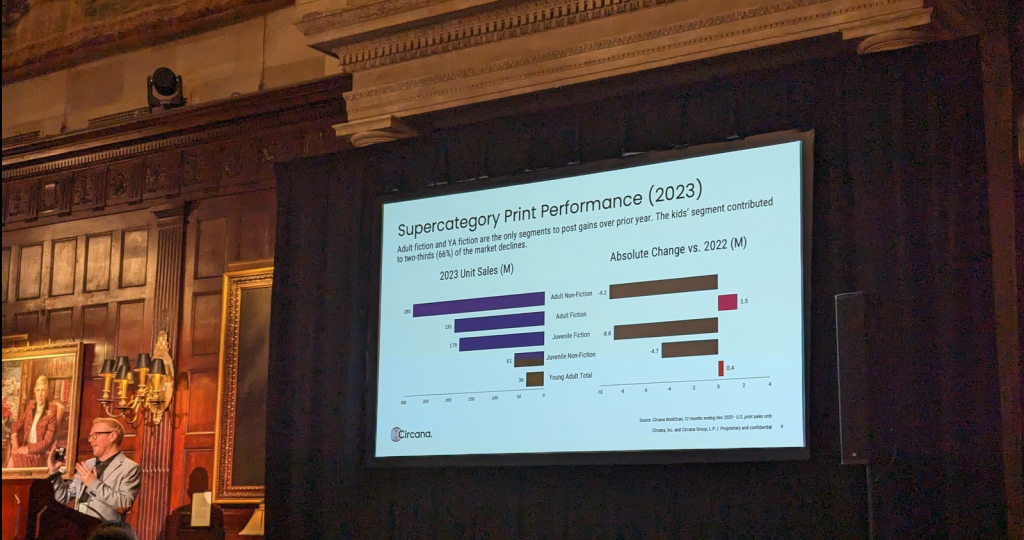
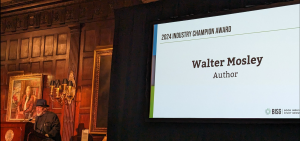
Executive Director Brian O’Leary’s closing session – Book Publishing Next: Changes We Want to See in the Industry – marked the first time Brian has given a keynote during his BISG tenure and provided a capstone to the day by walking through how all of the topics introduced earlier (rights, supply chain, subject codes, metadata, inclusion, and more) were the inspiration for the 3 year plan that had been introduced at the start of the day by the board. Brian highlighted how more growth can be achieved through better management of rights opportunities, managing costs, and being more consumer focused. Brian’s consultative approach to the info gathered through surveys and committee meetings leading up to the event hearkened back to a comment Phil Ollila had made earlier in the day, “People like to be engaged, not managed.” By encouraging ongoing engagement with the audience and the volunteers that comprise the bulk of BISG’s momentum, Brian underscored how the industry plays a vital role in making improvements for the continued benefit of everyone within publishing, rather than a one-way keynote closing the day’s sessions.
The below image cannot be emphasized enough – the volunteers drawn from all walks of the industry drive the content and mission of BISG, making meaningful events like the annual meeting itself and the ongoing webinars throughout the year possible.
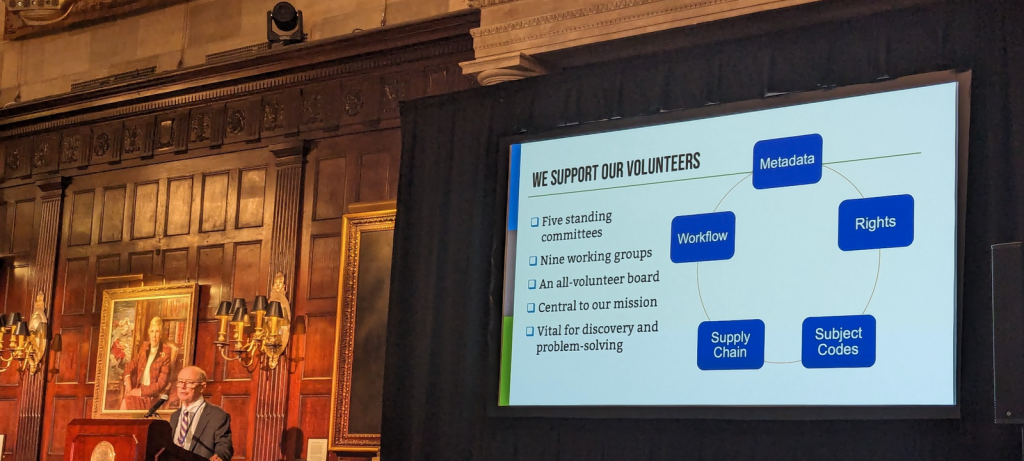
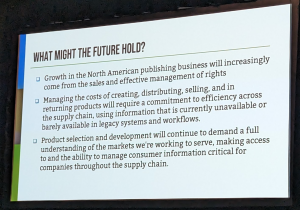
In closing, what does the future hold? Well, Brian shared a few ideas but in the theme of the day’s session, why not join BISG, attend a committee meeting to contribute your voice to the discussion and help steer publishing’s future? More about BISG membership, which is open to companies and individuals, is available here.
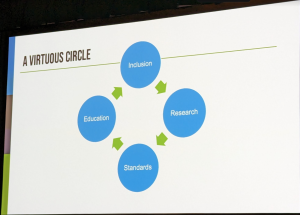
 Westchester Publishing Services has decades of history helping different types of publishers and content providers, including trade publishers, children’s publishers, K-12 EdTech platforms, think tanks, legal publishers, industry trade publishers, and many other types of organizations that create and distribute content.
Westchester Publishing Services has decades of history helping different types of publishers and content providers, including trade publishers, children’s publishers, K-12 EdTech platforms, think tanks, legal publishers, industry trade publishers, and many other types of organizations that create and distribute content. It was on that latter topic that Margot Atwell, the executive director and publisher of
It was on that latter topic that Margot Atwell, the executive director and publisher of 


